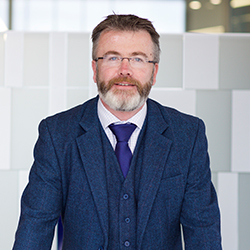Get your Story Straight, Newshound.
Commentary | 06/08/17There is no doubt that with the rise of social media there has never been a more appropriate time to say that everyone is a journalist.
We have the phenomena of citizen journalism. We have bloggers, microbloggers, vloggers, webloggers, podcasters, vodcasters, webcasters … the list is endless. Everyone with an electronic device is now an eye witness to all events throughout the world, be it the stoning of a crocodile in a Tunisian zoo or a celebrity running to catch a plane and allegedly taking out a pap. Social media has made observers, commentators and opinionators of us all.
I am not on social media. It scares me. As an outsider looking in, you can see that the deployment of a wrong phrase or the flippant use of conversational language can cause utter mayhem. The vitriol that an opinion or a comment can give rise to is frankly absurd.
With the accession of Trumpism, fake news has come to the fore. The US election was extraordinary for many things but, in particular, the amount of “news” items that were simply made up which, of themselves, became news.
Against this Wild West of news information/distribution, it strikes me that the so-called traditional media is under an ever increasing duty to ensure that it reports matters accurately and fairly whether it be internationally, nationally or, of course, locally. This requirement for accuracy is particularly important when the traditional media reports on judgments and decisions issued from our local judicial tribunals. Why?
The first principle of justice is that it must be done in public. The Royal Court has previously said this:
“The principle of open justice had not yet found statutory expression in Jersey but formed part of the law and an order for proceedings to be heard in camera [in private] was only to be granted when it was necessary to do justice in the exceptional circumstances of the case eg. to protect specific individuals or prevent the destruction of the subject matter in issue. Public proceedings ordinarily deterred inappropriate behaviour on the part of the Court, maintained public confidence in the impartial administration of justice, made uninformed and inaccurate comment on the proceedings less likely, and could result in additional evidence becoming available.”
I was reminded of this quote recently when I attended at an inquest. For those who do not know, an inquest generally arises in cases of sudden and unexpected deaths. Whether an inquest is to be held is determined by the Coroner. The Coroner seeks to establish answers to four questions: who the deceased was, and where, when and how he or she came by their death. The inquest is held in public.
As you can imagine, inquests are by their very nature terribly personal and tragic proceedings and are conducted by the Coroner in as sympathetic a manner as possible.
The inquest is held in public because the process itself is in the public interest, not on behalf of the individual. This is often difficult to explain to bereaved and grieving families. Therefore the accurate and sympathetic reporting by the media of the findings of the Coroner is essential. Frankly this should be the case in the reporting of all judgments and decisions emanating from our Tribunals.
Unfortunately one of the mainstream media in Jersey mis-reported certain evidence given at the inquest which I attended. As a consequence of that mis-reporting, I witnessed appalling social media “commentary” from certain members of the public. Why they felt the need to comment is beyond me. For the people involved in the inquest, this can only have caused them even greater distress and heartache.
So in this world of social media madness, fake news and poisoned pen comments from anonymous cowards, the onus is even greater upon our traditional news media to get the story straight. Given that open justice is to make “uninformed and inaccurate comment on the proceedings less likely”, it is essential that those who relay information to the public, for the benefit of the public, do so accurately.




